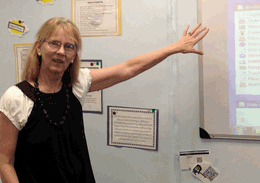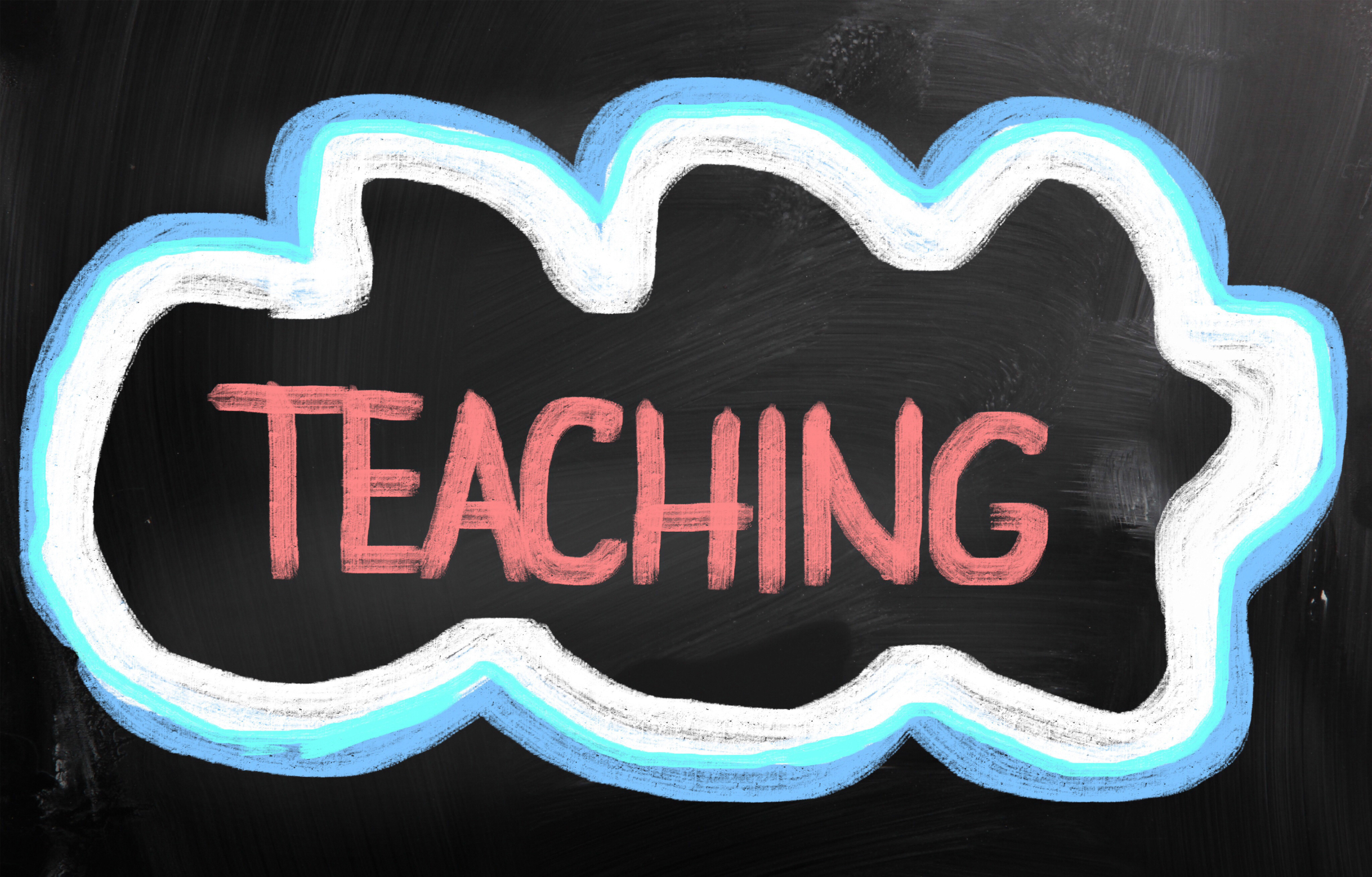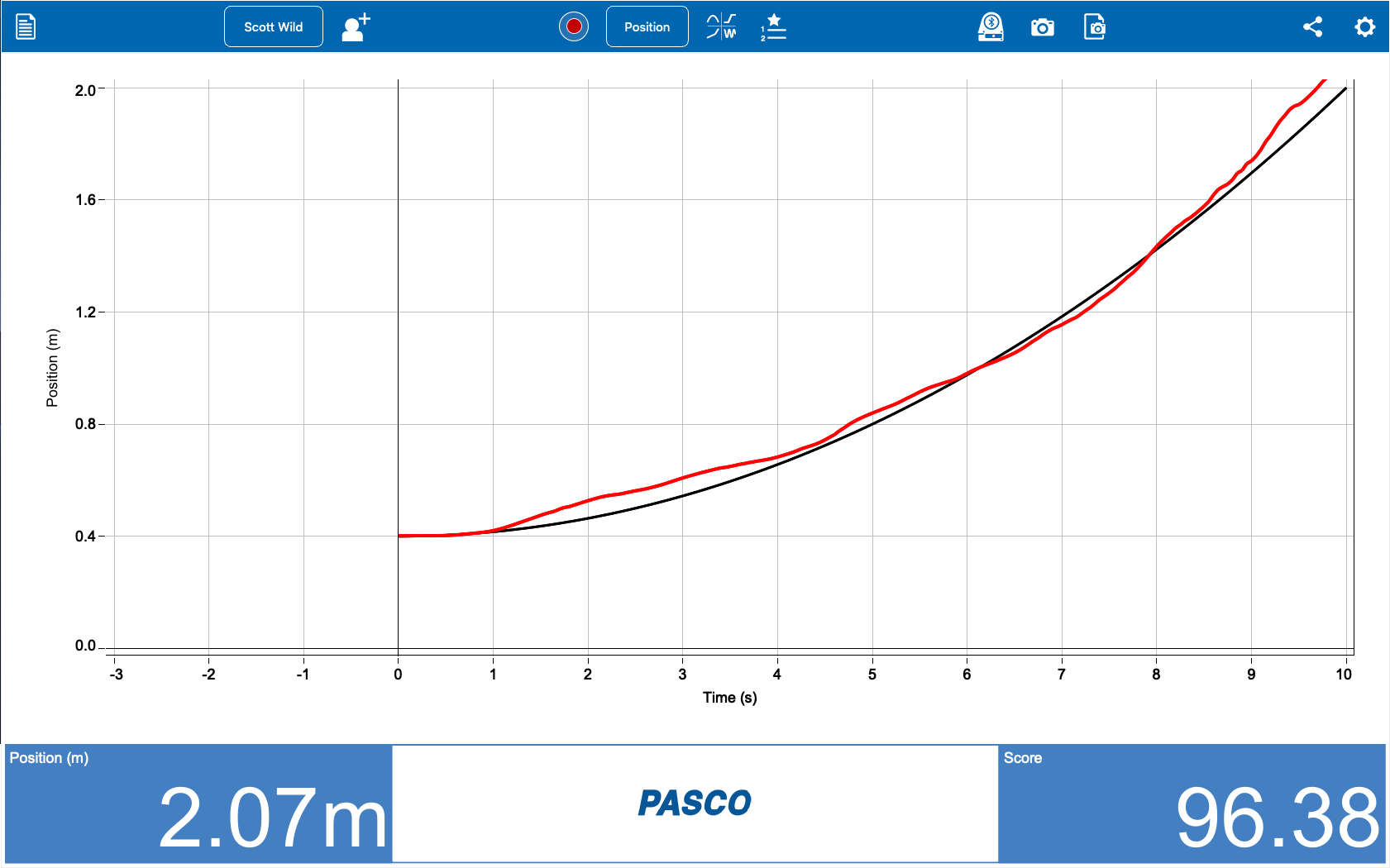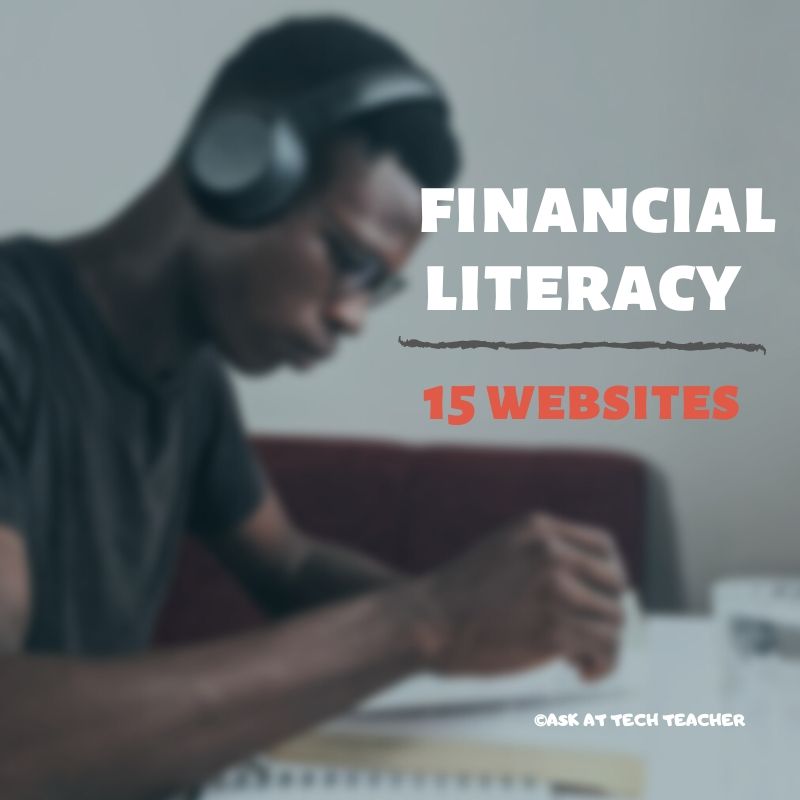Category: Research
4 Subjects Every Teacher Must Teach and How
 Teaching technology is not sharing a new subject, like Spanish or math. It’s exploring an education tool, knowing how to use computers, IPads, the internet, and other digital devices to serve learning goals. Sure, there are classes that teach MS Word and C++, but for most schools, technology is employed strategically and capably to achieve all colors of education.
Teaching technology is not sharing a new subject, like Spanish or math. It’s exploring an education tool, knowing how to use computers, IPads, the internet, and other digital devices to serve learning goals. Sure, there are classes that teach MS Word and C++, but for most schools, technology is employed strategically and capably to achieve all colors of education.
Which gets me to the four subjects every teacher must teach, whether s/he’s a math teacher, science, literacy, or technology. In today’s education world, all of us teach–
- vocabulary
- keyboarding
- digital citizenship
- research
They used to be taught in isolation–Fridays at 8:20, we learn vocabulary–but not anymore. Now they must be blended into all subjects like ingredients in a cake, the result–college or career for the 21st-century student. Four subjects that must be taught–and thanks to technology, CAN be with ease. Let me explain.
Vocabulary
Common Core requires that:
Students constantly build the transferable vocabulary they need to access grade level complex texts. This can be done effectively by spiraling like content in increasingly complex texts.
Share this:
5 Reasons Class Size Does NOT Matter and 3 Why Large is a Good Thing
 Are you drowning in students, sure that the flood of bodies that enter your classroom daily will destroy your effectiveness? Does it depress you, make you second-guess your decision to effect change in the world as a teacher? Do you wonder how you’ll explain to parents–and get them to believe you–that you truly CAN teach thirty students and meet their needs (because you must convince them–of all education characteristics, parents equate class size to success)?
Are you drowning in students, sure that the flood of bodies that enter your classroom daily will destroy your effectiveness? Does it depress you, make you second-guess your decision to effect change in the world as a teacher? Do you wonder how you’ll explain to parents–and get them to believe you–that you truly CAN teach thirty students and meet their needs (because you must convince them–of all education characteristics, parents equate class size to success)?
Take heart while I play Devil’s Advocate and offer evidence contrary to what seems by most to be intuitive common sense. I mean, how could splitting your finite amount of time among LESS students be anything but advantageous? Sure, there are many studies (US-based primarily) that support a direct correlation between class size and teacher ability to meet education goals, but consider how you–personally–learn. Sure, it occurs through teachers, but just as often by trial and error, peers, inquiry, student-centered activities, play, experiencing events, differentiated ways unlike others. Educators like John Holt believe “children [and by extension, you] learn most effectively by their own motivation and on their own terms”.
Is it possible the root of the education problem is other than class size? Getting Beneath the Veil of Effective Schools: Evidence from New York City (National Bureau of Economic Research) indicates that traditional success measures–including class size–do not correlate to school effectiveness. According to this study, what doesn’t matter is:
- class size
- per pupil expenditure
- fraction of teachers with no certification
- fraction of teachers with an advanced degree
Share this:
21 Websites with Data on Tech Ed
 I’ve added a new page where I’m collecting data on technology in education. It’s new right now, but drop by for a visit. I have links to source material on:
I’ve added a new page where I’m collecting data on technology in education. It’s new right now, but drop by for a visit. I have links to source material on:
- Class size
- Cursive
- Handwriting
- Keyboarding
- Overall Educational Achievement
- Teacher Pay
Do you have some favorite research? Add it as a comment to the bottom of the page.
Share this:
Dear Otto: How do I teach Inquiry and Research in Middle School
 Dear Otto is an occasional column where I answer questions I get from readers about teaching tech. If you have a question, please complete the form below and I’ll answer it here. For your privacy, I use only first names.
Dear Otto is an occasional column where I answer questions I get from readers about teaching tech. If you have a question, please complete the form below and I’ll answer it here. For your privacy, I use only first names.
Here’s a great question I got from Ms. F:
Question: I teach 6th, 7th, and 8th grade Instructional Technology. I struggle with the district standard for Inquiry & Research. I can’t seem to find just the right type of assignment/topic because searching this, that, or the other thing is just random, out of context, an exercise in learning key word searching, finding reliable sites,synthesizing info. If I make it too simple they can find all the answers on one site and then just plug in the facts. I had 6th do a What-Happened-In-Your-Birth-Year project where they identified different categories and then searched for an event in that category: Movies (and then find the Oscar winner for that year), Sports, Science, etc. Right now the 7th grade assignment is comparing e-Readers (price, memory, size, features) using a spreadsheet, then drawing conclusions.
Any great ideas that would interest middle school students are welcome!!
THANKS!
Here are some ideas:
Share this:
New Literacies Enable Smarter Researching
In my last post, we talked about “digital citizens”, the modern student who lives in two worlds. One he can touch with his hands, the other only with his mind. It’s this latter one  that has revolutionized education, provided opportunities for students to talk to experts on astronomy, walk through the ancient ruins of Stonehenge, and dissect a frog without touching a scalpel. This world is scintillating, but challenging, demanding students be risk-takers and inquirers.
that has revolutionized education, provided opportunities for students to talk to experts on astronomy, walk through the ancient ruins of Stonehenge, and dissect a frog without touching a scalpel. This world is scintillating, but challenging, demanding students be risk-takers and inquirers.
Inquiry and education
That last—inquiry—has changed the K-12 classroom from what many experienced just a decade ago, for students cannot be inquirers without being risk-takers. They take responsibility for their own learning by following practical strategies for uncovering information despite the billions (literally) of places to look. Consider this: If you Google ‘space’, you get over 4 billion hits. That much information is worthless. Digital citizens develop practical strategies for refining this list to a specific need.
Digital citizens also differentiate instruction so it works for themselves, not change their learning style to fit what the teacher delivers. They hear the big ideas, grasp the essential questions, and then develop a plan that delivers it in their own unique and personal way.
Share this:
Wikipedia vs Britannica–the Results May Surprise You
This infographic from Open Site–Free Internet Encyclopedia came as a huge surprise to me. I, like many teachers I know, warn students against relying on Wikipedia as a primary source for research. Imagine my surprise when I read the information below, on the heals of Britannica ending publication of their renowned and historic encyclopedia.
Share this:
How to Find Reliable Internet Sources
So much of reliable sources in internet searches is the same as researching in the library. Pick:
- primary sources
- unbiased sources
- sources with the background and training required to understand and present information
Young students have difficulty with these rules. They work hard just to maneuver through a search engine, the links, the search bar and the address bar. They’re thrilled when they get hits, much less trying to distinguish what’s good from bad. How do they know if it’s a ‘primary source’ or not? How can they determine what’s ‘biased’ or not? Or who has enough training to be trusted?Wikipedia is a great example. It’s edited by the People, not PhDs, encyclopedias or primary sources, yet it usually pops up pretty close to the top of a search list and lots of kids think it’s the last word in reliability.
With that in mind, I’ve made the rules simple: Look at the extension. Start with that limitor. Here are the most popular extensions and how I rate them for usefulness:
.gov
Published by the government and non-military. As such, it should be unbiased, reliable.
.mil
Published by the government and military. Perfect for the topics that fit this category, i.e., wars, economics, etc.
.edu
Published by colleges and universities. Historically, focused on research, study, and education
.org
U.S. non-profit organizations and others. They have a bias, but it shouldn’t be motivated by money
These four are the most trustworthy. The next three take subjective interpretation and a cursory investigation into their information:
.net
networks, internet service providers, organizations–traditionally. Pretty much anyone can purchase a .net now
.com
commercial site. Their goal is to sell something to you, so they are unabashedly biased. If you’re careful, you’ll still find good information here
.au, etc.
These are foreign sites. Perfect for international and cultural research, but they will retain their nation’s bias and interpretation of events, just as American sites have ours.
Jacqui Murray has been teaching K-18 technology for 30 years. She is the editor/author of over a hundred tech ed resources including a K-12 technology curriculum, K-8 keyboard curriculum, K-8 Digital Citizenship curriculum. She is an adjunct professor in tech ed, Master Teacher, webmaster for four blogs, an Amazon Vine Voice, CSTA presentation reviewer, freelance journalist on tech ed topics, contributor to NEA Today, and author of the tech thrillers, To Hunt a Sub and Twenty-four Days. You can find her resources at Structured Learning.
Share this:
Weekend Website #54: 20 Great Research Websites for Kids
Here are quick, safe spots to send your students for research (for updates to this list, click here):
- All-around research site libraryspot.com

- Dictionary www.dictionary.com
- Edutainment site—requires subscription www.brainpop.com/
- General info research www.infoplease.com/yearbyyear.html
- Internet research sites for kids http://ivyjoy.com/rayne/kidssearch.html
- Kids search engine for the internet kids.yahoo.com (more…)
Share this:
16 Great Research Websites for Kids
Please see the update here with more websites, kid-friendly browsers, citation resources, how to research, and a poster!
Quick, safe spots to send your students for research:
- BrainPop–with the BrainPop characters, a launchpad to curiosity
- CoolKidFacts–kid-friendly videos, pictures, info, and quizzes–all 100% suitable for children
- Dimensions–academic research geared for college-level
- Fact Monster–help with homework and facts
- Google Earth Timelapse–what changes to the planet over time
- Google Trends–what’s trending in searches
- History Channel–great speeches
- How Stuff Works–the gold standard in explaining stuff to kids
- Info Please–events cataloged year-by-year
- Library Spot–extensive collection of kid’s research tools
- National Geographic for Kids
- Ngram Viewer–analyzes all words in all books on Google Books
- SqoolTube Videos–educational videos for preK-12
- TagGalaxy–search using a cloud
- Wild Wordsmyth–picture dictionary for kids
- World Book–requires membership
More
Use Unconventional Research Sites to Inspire Students
How do I teach Inquiry and Research in Middle School
updated 3-22-21
Jacqui Murray has been teaching K-18 technology for 30 years. She is the editor/author of over a hundred tech ed resources including a K-12 technology curriculum, K-8 keyboard curriculum, K-8 Digital Citizenship curriculum. She is an adjunct professor in tech ed, Master Teacher, webmaster for four blogs, an Amazon Vine Voice, CSTA presentation reviewer, freelance journalist on tech ed topics, contributor to NEA Today, and author of the tech thrillers, To Hunt a Sub and Twenty-four Days. You can find her resources at Structured Learning.








































